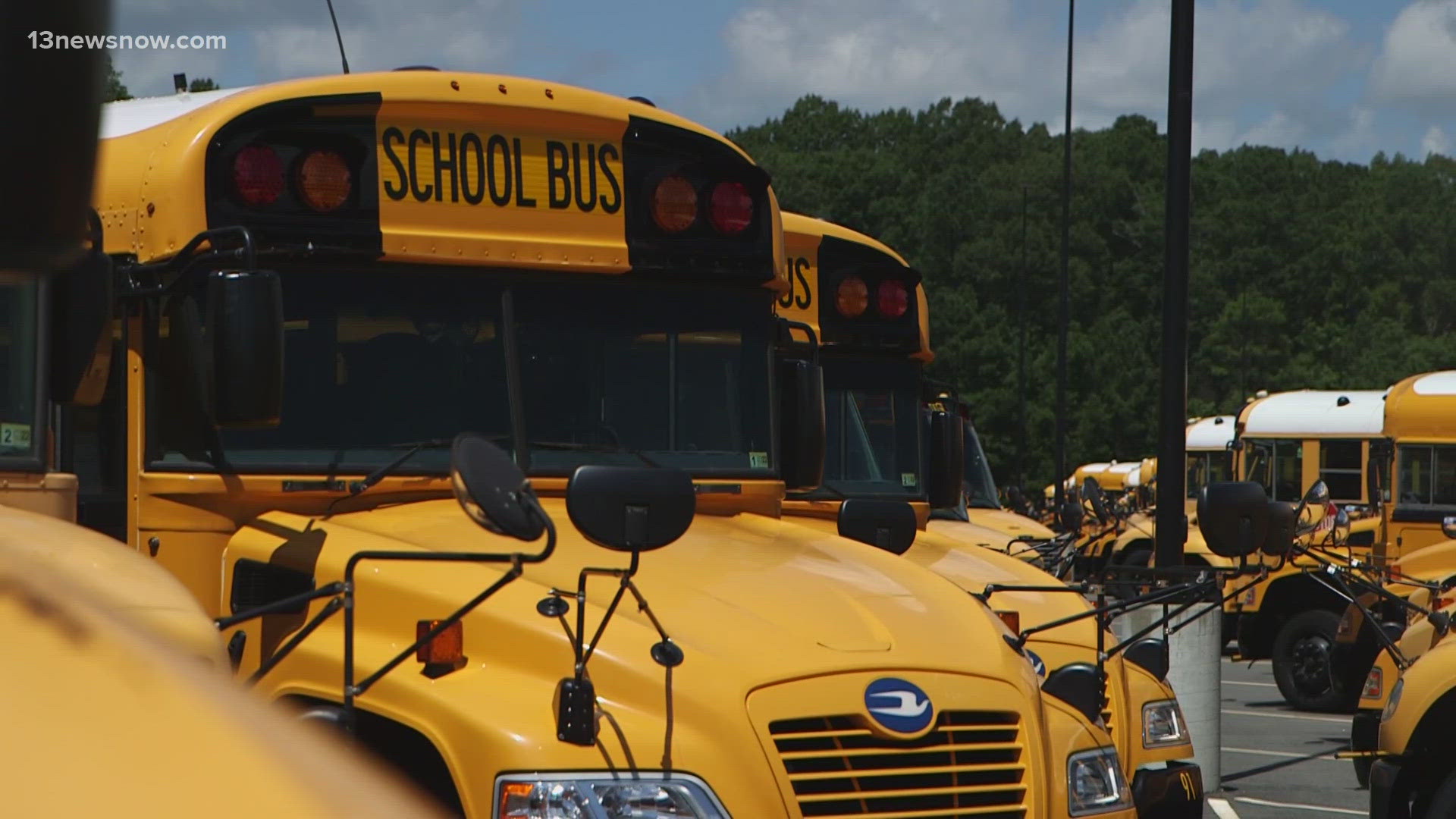HAMPTON, Va. — As pandemic-era education funding is set to expire in a couple of months, Beverly Boone believes her grandkids may be falling through the cracks of the Hampton City Schools division.
Since elementary school, Boone's two grandchildren-- whom she is the legal guardian of-- have received their education with the support of an Individualized Education Program (IEP). At the onset of the COVID-19 pandemic, Boone's grandchildren-- in fifth and fourth grade at the time-- then moved to fully virtual learning through the Virtual Virginia program. Since then, they have received their education exclusively online according to Boone.
Boone cited both learning disabilities and behavioral complications such as anxiety as the basis for why her grandchildren are better suited to learn in more virtual settings.
However, an upcoming change to federal funding issued through the COVID-19 pandemic has created an uphill battle for Boone's grandkids to continue their learning virtually.
What are ESSER Funds?
Roughly $3 billion in federal pandemic funds were allocated to the local school divisions in Virginia, through the Elementary and Secondary School Emergency Relief Fund (ESSER).
There were three rounds of ESSER funding, the most recent coming in March of 2021 through a $1.9 trillion package included in the American Rescue Plan.
In Hampton, the division was awarded $85 million in total ESSER funds.
According to the Virginia Department of Education's ESSER tracker, the seven cities that make up the Hampton Roads region were awarded $712 million.
A difficult dilemma
According to a spokesperson for Hampton City Schools, ESSER funds will expire at the end of September 2024, which helped fund fully virtual learning through Virtual Virginia.
Now, those who wish to continue fully virtual learning will have to do so on a tuition basis:
Hampton City Schools will continue to offer virtual options for our secondary students next year. However, for those seeking to be fully virtual, it will be on a tuition basis through Virtual Virginia. While not free, this will be offered to students at a lower cost (more than 50% lower than Virtual Virginia’s tuition rate).
As our practice prior to COVID, we will continue to provide individual Virtual Virginia courses (not fully virtual) at no cost to students who have specific course needs (e.g., rising 10th grade student who needs to repeat a course to fulfill a graduation requirement and there is a course conflict within the student’s schedule).
According to Virtual Virginia's enrollment fees, course prices range between $250 to $450. For Boone, she estimates that if she were to elect to keep her kids fully virtual through the program, it would cost between $3,000 to $4,000 for the year.
“I can't afford this, I’m a single grandparent on disability. [They] said it was 125 dollars per course per semester, and I told them 'I can’t afford this.'”
Boone provided medical documentation, demonstrating medical professionals advised her that virtual learning environments were best suited for her grandkids' education.
For Boone, the two options she's weighing this summer for the upcoming school year have less than ideal outcomes: either send her grandkids into a learning environment that she doesn't believe is beneficial for their progress, or pay for a program she has previously been able to access for no cost.
"I shouldn’t have to come up with the resources"
According to a division spokesperson, the availability of virtual learning is not a required component of a student who has an IEP.
By federal and state regulations, virtual learning is not an option on the continuum of services (not a special education placement) for students with disabilities, meaning that it is not IEP driven. During the time the school division offered free fully virtual learning (see additional information above), this opportunity was offered for all students to include our special needs population as we provide equitable opportunities for all students.
Boone argued back that it's a loophole in the way IEP forms are written and is negatively affecting students like her grandkids.
“When they created that form, virtual was not an option because we didn’t have the COVID-19 pandemic. They didn’t realize virtual learning could be an option until COVID came. But instead of modifying the form to list virtual as a 'least restrictive' option for kids because it does work better for some, they didn’t add it."
“If you can’t provide the learning environment that’s 'least restrictive' and best suited for him, but you’ll force him into an environment that causing mental anguish, how is he winning," she added.
Shortly after an early June meeting with educators, Boone says she filed a complaint with the U.S. Department of Education's Office of Civil Rights and feels her grandkids' learning disabilities are not being properly accommodated by the division.
“The reason I filed the complaint was it was one of many issues," she said. "It's more about me feeling my grandkids are feeling slighted because of a disability.”

